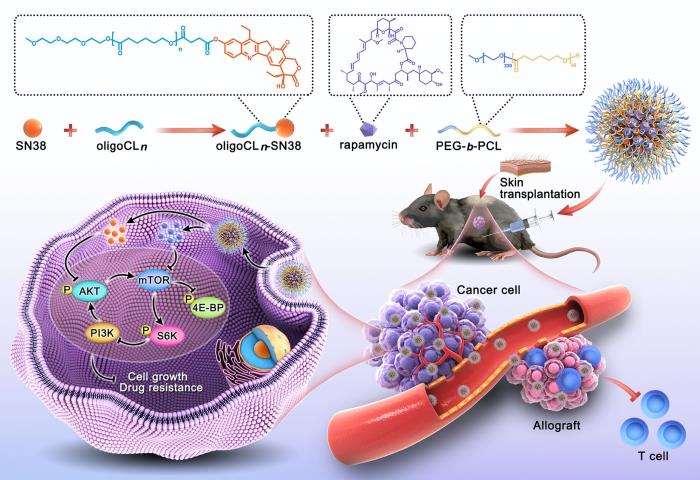Heart transplantation is a life-saving procedure for patients with end-stage heart failure. However, it comes with long-term risks, including an increased likelihood of developing certain cancers. This heightened risk is primarily due to the lifelong use of immunosuppressive medications necessary to prevent organ rejection. Recognizing and addressing this link between heart transplantation and cancer is crucial for improving outcomes and quality of life for transplant recipients.
Medical disclaimer: This content is for general awareness and does not replace a doctor’s consultation. For diagnosis or treatment decisions, consult a qualified specialist.
Why Are Heart Transplant Recipients at Higher Risk of Cancer?
Heart transplant recipients face a higher cancer risk because their immune systems are deliberately weakened to prevent rejection of the donor organ. This immunosuppression reduces the body’s ability to detect and destroy abnormal or cancerous cells, increasing susceptibility to malignancies. Additionally, prolonged exposure to these medications compounds this risk over time.
The Role of Immunosuppressive Medications in Post-Transplant Cancer Development
Medications such as cyclosporine, tacrolimus, and mycophenolate mofetil are essential for preventing graft rejection. However, they suppress immune surveillance, allowing cancer cells to proliferate unchecked. These drugs can also exacerbate the effects of oncogenic viruses like Epstein-Barr virus (EBV) and human papillomavirus (HPV), further increasing cancer risk.

Common Types of Cancer Seen in Heart Transplant Recipients
Certain cancers are more prevalent in heart transplant patients compared to the general population. These include skin cancers, lymphomas, and cancers associated with viral infections. Vigilance for these malignancies is vital in post-transplant care, as early detection significantly improves treatment outcomes.
Skin Cancer: The Most Common Post-Transplant Malignancy
Non-melanoma skin cancers, such as squamous cell carcinoma and basal cell carcinoma, are the most frequent malignancies in heart transplant recipients. This increased incidence is attributed to immunosuppressive therapy and heightened sensitivity to ultraviolet (UV) radiation. Regular skin examinations and sun protection are essential preventive measures.
Lymphomas in Heart Transplant Patients: Causes and Prevention
Post-transplant lymphoproliferative disorder (PTLD), a type of lymphoma, is a serious complication linked to immunosuppression, particularly in patients with EBV infections. Reducing immunosuppressive therapy and targeted treatments, such as rituximab, can help manage PTLD. Early recognition of symptoms, including unexplained fever, weight loss, and lymph node swelling, is critical for timely intervention.
Risk Factors Contributing to Post-Transplant Cancer in Patients
Several factors influence cancer risk in heart transplant recipients, including the duration and intensity of immunosuppressive therapy, genetic predisposition, and lifestyle factors such as smoking and sun exposure. A history of pre-existing viral infections, such as hepatitis or HPV, also increases vulnerability to certain cancers.
The Impact of Pre-Existing Conditions on Post-Transplant Cancer Risk
Patients with pre-existing conditions like viral infections or chronic illnesses may have a heightened cancer risk post-transplant. Conditions such as HPV, hepatitis, or prior skin lesions are especially significant risk factors.
The Importance of Regular Cancer Screening for Heart Transplant Patients
Routine cancer screenings, including dermatological exams and imaging tests, are essential for early detection, allowing timely intervention and improved outcomes in heart transplant recipients.
Managing Immunosuppression to Reduce Cancer Risk
Carefully balancing immunosuppressive therapy is vital to minimize cancer risk while preventing organ rejection. Strategies include using lower doses or switching to medications with a reduced carcinogenic profile.
Lifestyle Changes to Lower Cancer Risk After Heart Transplantation
Adopting a healthy lifestyle, including avoiding tobacco, limiting alcohol, following a nutritious diet, and protecting against UV exposure, can significantly reduce cancer risks in transplant recipients.
Advances in Immunosuppressive Therapies and Cancer Prevention
Newer immunosuppressive drugs are designed to target rejection risks while minimizing side effects, including the development of cancer, providing safer long-term options for transplant patients.

Early Detection and Treatment of Cancer in Heart Transplant Recipients
Close monitoring and prompt action on any suspicious symptoms or findings can prevent cancer progression. Multidisciplinary care is crucial for managing both cancer and transplant-related concerns.
Balancing Organ Rejection Prevention with Cancer Risk Management
Striking a balance between preventing rejection and minimizing cancer risk requires individualized treatment plans, frequent medical reviews, and ongoing adjustments to immunosuppressive regimens.
The Role of Oncologists in Post-Transplant Patient Care
Oncologists play a crucial role in the collaborative care of transplant patients by providing specialized knowledge in cancer prevention, detection, and treatment while considering the unique challenges of immunosuppression.
Psychological Impact of Post-Transplant Cancer on Patients and Families
A cancer diagnosis post-transplant can be overwhelming for patients and families. Access to psychological support and counseling is vital for coping with the emotional and mental health challenges associated with dual diagnoses.
How Genetics Influence Cancer Risk After a Heart Transplant
Genetic predispositions to certain cancers may be amplified by immunosuppressive therapies. Genetic testing can help identify high-risk patients and tailor prevention strategies accordingly.
Success Stories: Managing Cancer Risk While Thriving Post-Transplant
Inspiring accounts of heart transplant recipients who have successfully navigated cancer risks highlight the importance of vigilant care and the advancements in post-transplant medicine.
Collaborative Care Models for Managing Cancer in Heart Transplant Patients
Team-based approaches, involving cardiologists, oncologists, transplant specialists, and psychologists, ensure comprehensive care for transplant recipients facing cancer risks.
The Challenges of Heart Transplantation in Diabetic Patients
Understand the challenges of heart transplantation in diabetic patients. This blog discusses the unique risks that diabetic patients face when undergoing heart transplant surgery, including complications related to blood sugar control, wound healing, and organ rejection.
Conclusion: Reducing the Burden of Cancer in Heart Transplantation
By adopting a proactive approach, including regular screenings, personalized immunosuppressive regimens, and a healthy lifestyle, heart transplant patients can significantly lower their cancer risk and enjoy improved long-term outcomes.
Best Heart Transplant in India
The Best Heart Transplant in India offers a life-saving solution for patients with end-stage heart failure, using advanced surgical techniques and comprehensive post-transplant care.
Best Heart Transplant Hospitals in India
The Best Heart Transplant Hospitals in India provide state-of-the-art facilities, skilled transplant specialists, and multidisciplinary teams for seamless patient care and recovery.
Heart Transplant Cost in India
The Heart Transplant Cost in India is structured to offer affordability while ensuring access to world-class transplant services and comprehensive care packages.
Best Heart Transplant Surgeons in India
The Best Heart Transplant Surgeons in India have extensive experience in performing complex transplants, ensuring precise techniques and personalized patient care for optimal outcomes.
FAQs
Why are heart transplant recipients more prone to cancer?
Immunosuppressive drugs reduce the body's ability to detect and destroy abnormal cells, increasing the risk of cancer.
What types of cancers are common after a heart transplant?
Skin cancers, lymphomas, and cancers caused by viral infections, such as HPV-related cancers, are the most prevalent.
How do immunosuppressive drugs contribute to cancer risk?
These medications suppress the immune system, allowing potentially cancerous cells to grow unchecked and reducing the body's ability to fight infections linked to cancer.
Can cancer be prevented in heart transplant patients?
While it cannot be entirely prevented, reducing risk factors like sun exposure, maintaining a healthy lifestyle, and attending regular screenings can significantly lower the chances of developing cancer.
How often should heart transplant patients be screened for cancer?
Screening frequency depends on individual risk factors, but annual dermatological exams, regular imaging, and blood tests are typically recommended.
Cardiac rehabilitation is a critical component of recovery after a heart transplant. It helps patients regain strength, improve mobility, and speed up recovery. These programs typically include medically supervised exercise, nutrition counseling, health education, and psychological support. Engaging in cardiac rehabilitation can significantly enhance the quality of life and long-term health outcomes for heart transplant recipients. The Role of Cardiac Rehabilitation After a Heart Transplant
Post-transplant rehabilitation programs are vital for improving the recovery and long-term health of transplant recipients. These programs help patients regain strength, improve mobility, and enhance overall well-being. They typically include medically supervised exercise, nutrition counseling, health education, and psychological support. Engaging in these programs can significantly reduce the risk of complications, promote a healthier lifestyle, and improve the quality of life for transplant patients. The Importance of Post-Transplant Rehabilitation Programs
Heart transplantation raises several ethical questions and considerations. These include issues of informed consent, organ donation and allocation, fairness and justice in recipient selection, and the ethical implications of reusing organs. Understanding these ethical aspects is crucial for ensuring that heart transplantation is conducted in a manner that respects the dignity and rights of all individuals involved. Exploring the Ethical Aspects of Heart Transplantation